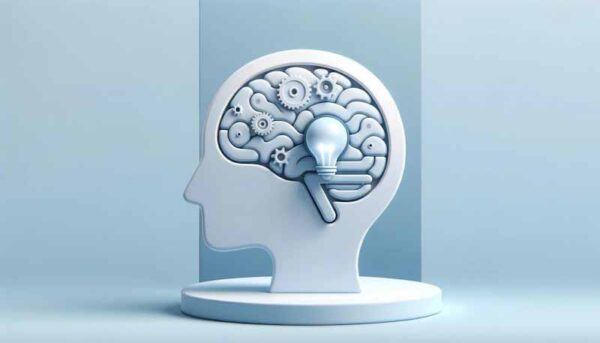Understanding the science of memory can significantly enhance one’s ability to retain information. Techniques like visualization, association, and building memory palaces can improve one’s studying and information retention.
Visualization
Visualization is a powerful memory technique that creates vivid images representing information. When you visualize, your brain creates a more concrete representation of abstract concepts, making them easier to recall. For instance, imagine each item vividly in your mind if you need to remember a list of grocery items. Picture a large, juicy apple or a loaf of bread with a distinctive shape.
Association
Association links new information to existing knowledge, making it easier to remember. This technique involves connecting new data with something you already know. For example, if you need to remember someone’s name, associate it with a familiar object or person. If the person’s name is “Rose,” you might visualize a rose flower whenever you see them. This mental link helps reinforce the memory.
Memory Palaces
Building memory palaces is an ancient technique that leverages spatial memory to organize and recall information. A memory palace involves visualizing a familiar place, like your home, and associating pieces of information with specific locations within that place. For example, to remember parts of a speech, imagine walking through your house and placing each part of the speech in a different room. When you need to recall the speech, mentally walk through your memory palace.
Chunking
Chunking involves breaking down large pieces of information into smaller, more manageable units. This technique is particularly useful for remembering numbers, dates, or complex lists. For example, instead of trying to remember a long string of numbers like 1234567890, break it down into chunks like 123-456-7890.
Exploring More Methods
Mnemonics
Mnemonics are memory aids that help you remember information through patterns, rhymes, or acronyms. For example, to remember the order of operations in mathematics, you might use the PEMDAS (Parentheses, Exponents, Multiplication and Division, Addition and Subtraction).
Repetition
Repetition reinforces memory by repeatedly exposing your brain to the same information. This technique is effective for memorizing facts, vocabulary, or procedures. The key is reviewing the material at spaced intervals over time rather than cramming simultaneously.
Mind Mapping
Mind mapping involves creating a visual diagram connecting different information pieces around a central concept. This technique helps organize thoughts and ideas, making understanding and remembering complex subjects easier. Use colors, images, and keywords to enhance the map’s effectiveness.
Additional Tips for Improved Memory
Practice Regularly: The more you use these techniques, the better you’ll become at applying them. Consistency is key.
Stay Organized: Keeping information well-organized aids memory. Use tools like planners or digital apps to keep track of important details.
Get Enough Sleep: Quality sleep is crucial for memory consolidation. Ensure you’re getting adequate rest to support your memory functions.
Stay Hydrated: Proper hydration supports cognitive functions. Drink plenty of water throughout the day.
Exercise: Physical activity boosts brain function and improves memory. Incorporate regular exercise into your routine.
Understanding and utilizing these techniques can improve your ability to retain information, making studying and everyday tasks more manageable and efficient. For more detailed insights on these techniques, you can explore resources like Mind Tools and Memory Improvement Tips
Enhancing your memory is not just about hard work; it’s about working smart. You can significantly improve your information retention by leveraging the power of visualization, association, memory palaces, chunking, mnemonics, repetition, and mind mapping. Implement these techniques consistently, and you’ll notice a marked improvement in your recall of important information.




